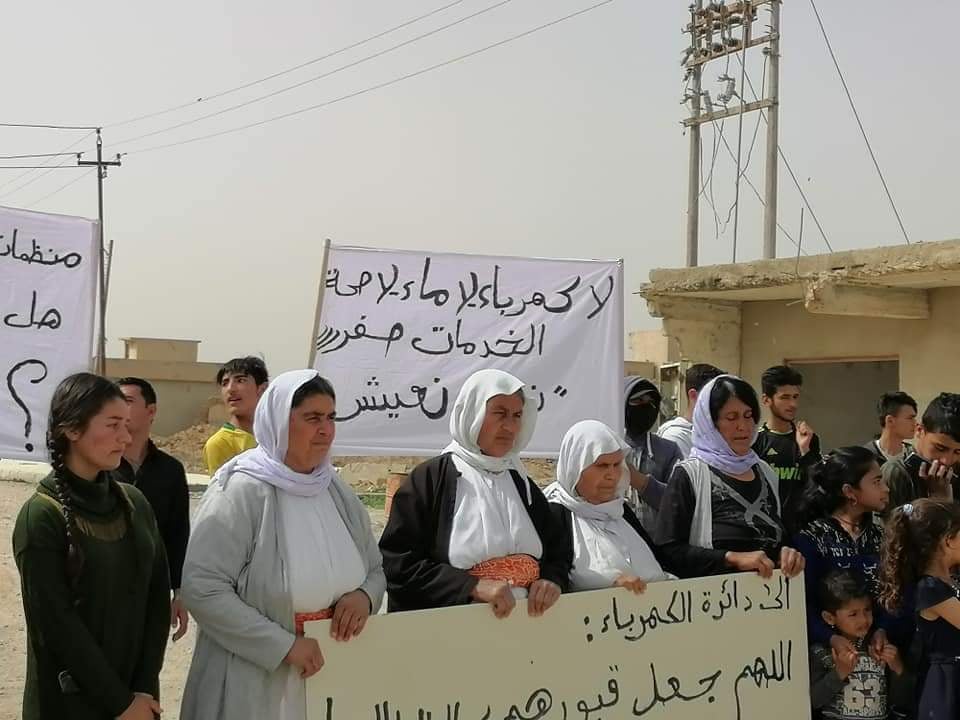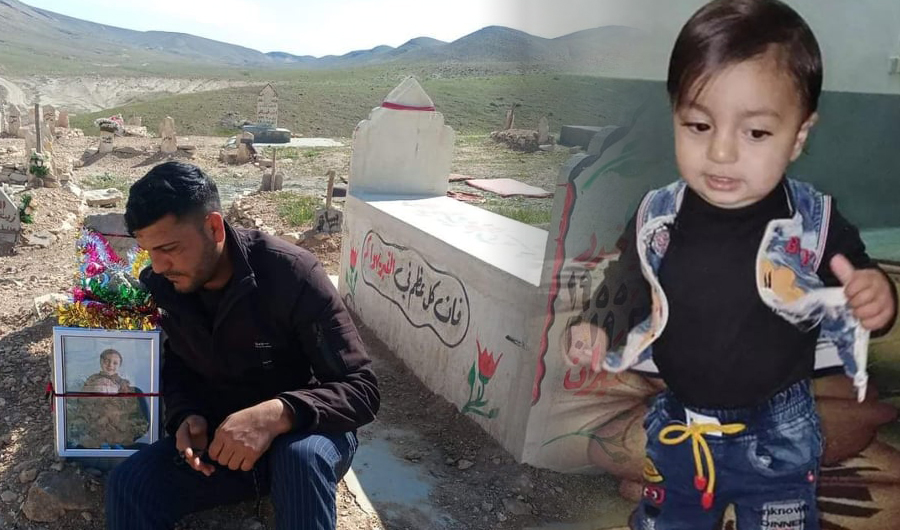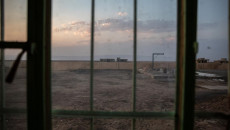The Ezidi returnee family have spent less than a year in hometown when they lost their 18 months old son in a car accident. Their grief is absence of healthcare in the settlement of Siba Sheikh Khidir.
On March 20, a truck celling cooking gas canister hits the little boy who could not reach Shingal district hospital.
Farhan Elias Qasim said he was at home prepared to celebrate Newroz bonfire when he heard the scream of his child. “When I ran outside, I found him hit by the truck but he was still alive.” Due to absence of a health center, he drives to Shingal, 30 km away from the settlement. As the road has not been renovated, a tire blows out and he waits 10 more minutes for a pick up.
“The road is so bad and we were in a hurry so a tire blew off. It took 10 minutes to get another car. It took us one hour to the hospital but he could not make it.”
“Our fate and destiny are controlled by God’s will yet if there was a health care center in our compound, he could have been treated.”
“Our fate and destiny are controlled by God’s will yet if there was a health care center in our compound, he could have been treated.”
The settlement of Siba Sheikh Khidir, west of Shingal, used to be home for about 7,000 Ezidis, a monotheist ethnoreligious minority till 2014 when the so-called Islamic State ISIS extremist militants stormed the region and controlled one third of Iraq till 2017.
Currently only about 100 families returned to their war-torn homeland, deprived of basic public services of healthcare, utilities of drinking water and electricity, and proper paved roads. The extremist jihadist whom accuse the vulnerable community of being defectors left behind 200 people slaughtered and five mass graves in the compound.
Shingal, located 120 west of Mosul, center of Nineveh province, on the border of Iraq-Syria, is home to the Ezidi religious minority and part of the disputed territories between Baghdad and Erbil.
The complex texture of the security and administrative situation in Shingal region is an aftermath of ISIS reign and a source of concern of the Ezidi community in general and in particular for those returned home in hope of leading a normal life post ISIS trauma.
In the Ezidi-dominant region of Shingal, only three thousand square km, Baghdad federal and Erbil regional governments compete to establish their rule: three local administrations want to administer the district, and eight different security forces are deployed.
Iraqi government and the Kurdistan Region Government KRG agreed to appoint a new mayor and jointly provide security by a unit of local volunteers in order to oust other militias in particular pro-PKK troops yet the “Shingal Agreement” signed in October 2020 is not effective yet.
“I have lost a son so let the officials take this place into consideration and provide power and healthcare to retuned IDPs. Otherwise, ten cases like my son Reman will happen again. Local officials are in charge for death of my son and will never forgive them. May God take revenge.”
Local officials are in charge for death of my son and will never forgive them. May God take revenge.

Protest by residents of the settlement on April 8th for absence of basic utilities. Photo by KirkukNow.
Over 550,000 Ezidis were living in Iraq ahead of IS atrocities mounted into Genocide, the United Nations reported. About 350,000 Ezidis were displaced, only one third of them are back to their hometowns for lack of stability and poor public services and living conditions.
The extremist Islamic group has slaughtered thousands of innocent civilians, mainly men, taken 6417 Ezidis into slavery, mainly women and children yet up today half of them has been rescued.
The locals are leading a miserable life amid lack of power supply, drinking water and proper streets.
Mahdi Naif have returned to Siba Sheikh khidir a year ago. “We thought our are will be reconstructed because we are back yet up today no local official paid us a visit.”
“Despite our sacrifices, so far there is no enough water for drinking, we use lanterns for lighting because there is no national power.”
“Despite our sacrifices, so far there is no enough water for drinking, we use lanterns for lighting because there is no national power.”
Adel Kahla, a resident of the compound, told KirkukNow the local authorities provide water only two days a week and they do not provide any kind of medicine.
The returned IDPs protested the poor living conditions on April 8th and called on the local officials for infrastructure and basic public services.
Nineveh province has allocated a mobile health center for the compound. A physician and a paramedic visit the compound once a week.
Jalal Khalaf deputy mayor of Shingal told KirkukNow that he is aware of the challenges the returnees face.
Khalaf said that healthcare is provided by the mobile health center temporarily. “For power and water, we called on the international organizations and the government. “We are just waiting for that.”
“We cannot do anything else about it. Our duty is to deliver their demands and we did.”
“We cannot do anything else about it. Our duty is to deliver their demands and we did.”
Despite the closure of many camps for the IDPs and the volunteer return home, there are still thousands of Ezidis living in 16 camps in Duhok northern province. The returnee Ezidis are still living in unrest at a time of political and security tensions and fluctuating economy under Covid-19 pandemic.






